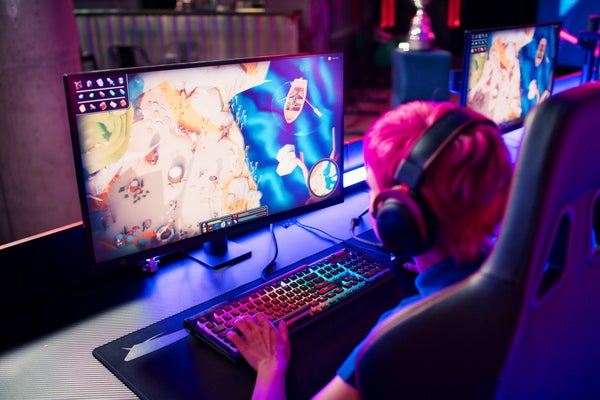When Real Life Is Hostile, LGBTQ+ Gamers Find Friendship Online
Many LGBTQ+ video gamers use gaming to build community, especially in jurisdictions that are considering anti-LGBTQ+ legislation
Janiecbros/Getty Images
When Texas-based fitness instructor Fabby Garza came out as transgender, the first friends she told were those she’d made playing online games. She waited three more years before she started presenting as feminine in the real world. “Once I finally came out, I had to change the way I lived my life. Taking the bus suddenly became incredibly dangerous. I would get harassed and had strange men follow me off the bus, trying to coerce me into having sex with them,” Garza says. “But when I got home and played Final Fantasy XIV or Overwatch or Fortnite with friends, they used my name and pronouns. They allowed me to be myself in a place that was actively hostile toward me.”
Many gamers with a marginalized sexual orientation or gender identity use the gaming world to express themselves freely despite real-life hostile environments. This is especially common for people in jurisdictions that have adopted or are considering anti-LGBTQ+ legislation. These gamers defy the American stereotype of the white male player—also presumed to be heterosexual and cisgender—whose tastes the video game industry had historically catered to. A recent report from the LGBTQ+ advocacy organization GLAAD found that nearly one in five heavy gamers (those who spend 10 or more hours a week playing) is LGBTQ+. That’s higher than previous results; a 2020 Nielsen survey found that 10 percent of such highly engaged gamers were LGBTQ+.
The GLAAD survey reports that LGBTQ+ gamers are 11 percent more likely than straight, cisgender players to use gaming to “escape from difficult situations in the real world” and 24 percent more likely to use it to get through “tough times.” A majority (66 percent) of these respondents said gaming lets them express…
Read the full article here







